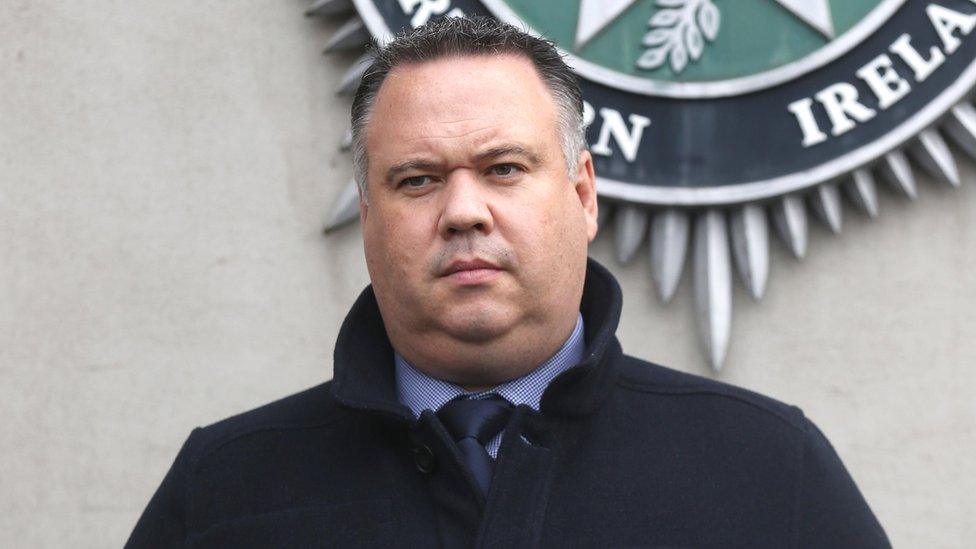PSNI: Liam Kelly urges government to get a grip on policing crisis
- Published
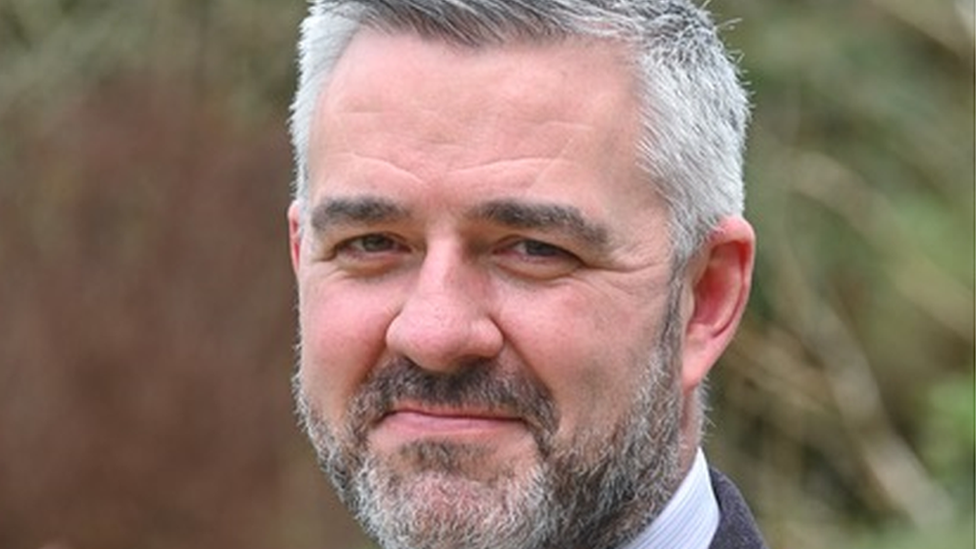
Liam Kelly said "urgent and positive intervention" is needed to address a crisis in policing
The body that represents rank-and-file police officers in Northern Ireland has urged the government to "get a grip" on a "deepening crisis in policing".
Liam Kelly of the Police Federation for Northern Ireland, said "urgent and positive intervention is long overdue".
In December, the chief constable Jon Boutcher said a 7% pay rise for police officers would be implemented.
Mr Kelly said the UK government must realise it is presiding over "appalling damage" to policing.
In a statement, a spokesperson for the Northern Ireland Office (NIO) said: "Policing and justice are devolved, and it should be for locally-elected politicians to work to tackle the issues facing the police force in Northern Ireland."
The past year was a difficult one for policing in Northern Ireland.
A chief constable was forced to resign, budget woes took officer numbers to a record low, and the worst data breach in UK policing history was hugely damaging to staff morale.
Talks between the government and main Northern Ireland parties took place before Christmas with Northern Ireland Secretary Chris Heaton-Harris saying that a financial package of more than £3.3bn was available for the return of the executive.
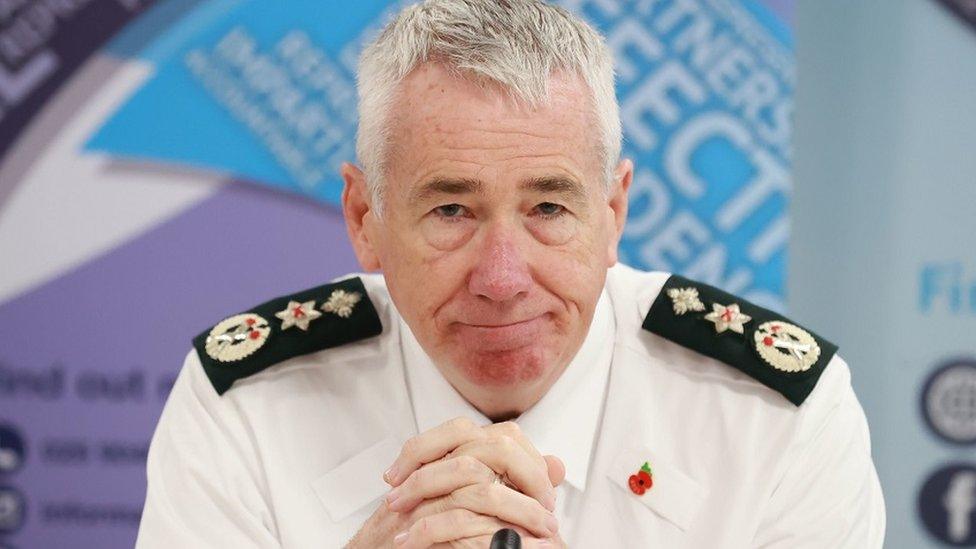
Chief Constable Jon Boutcher said a 7% pay rise for police officers would be implemented
Mr Kelly said the package contains money to address public sector pay awards including for police officers.
"Yet, without ministers in place, the secretary of state is refusing to budge to sign off on long overdue pay increases," he said.
"For the secretary of state to positively intervene on pay awards would see the removal of a bargaining chip in the endless discussions over the Windsor Framework and the Northern Ireland budget.
"So, the officers I represent are effectively pawns in this political controversy, this logjam that is not of their making."
The Windsor Framework relates to the UK-EU arrangements for post-Brexit trade in Northern Ireland.
The introduction of additional checks on goods moving between Northern Ireland and Great Britain is at the centre of a protest by the Democratic Unionist Party which has left Stormont without an executive for close to two years.
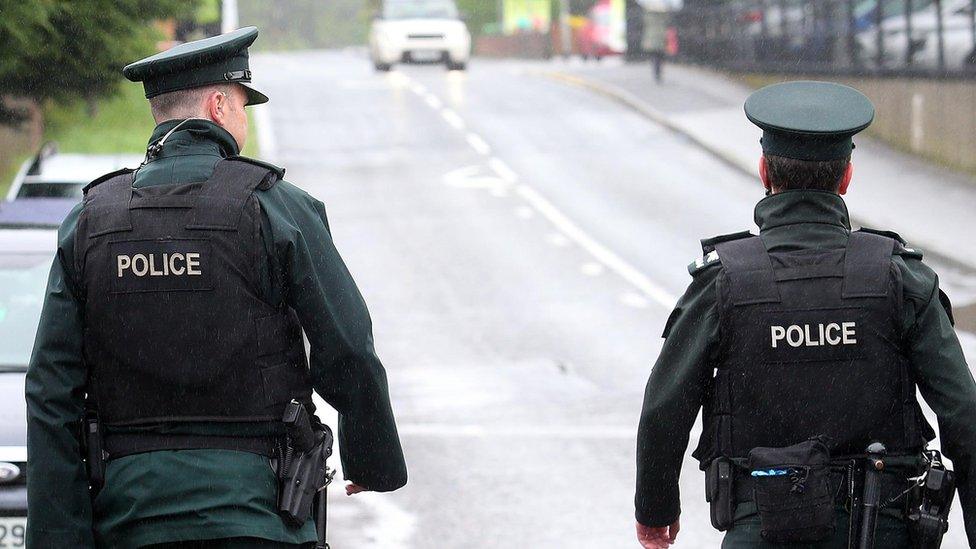
Mr Kelly said police numbers could fall to unsustainable levels
Mr Kelly also said that he expects the number of PSNI officers to drop to "a frightening and unsustainable" new low of 6,300 officers.
He said only the government could apply the brake that is needed to falling police numbers in Northern Ireland.
"If they want to preside over a service that could continue to shrink by a further 700 in the next financial year, then they're on the right track," Mr Kelly said.
"Heading towards 5,600 officers may be a challenge too far for the service with colossal and far-reaching impacts on the services we provide."
Mr Kelly said there was a growing PSNI funding gap of some £52m following a massive cost-cutting exercise that included stopping recruitment.
"Our society needs to see the PSNI getting the significant investment it requires as a matter of urgency," he added.
The NIO spokesperson added: "In his statement on 19 December, the secretary of state said that the UK government had granted an initial reserve claim of £15m after the PSNI data breach, which would not have to be repaid.
"The PSNI is funded from the Northern Ireland Executive block grant via the Department of Justice. In 2023-24 the department was allocated £1.2bn resource funding."
- Published12 November 2023

- Published11 December 2023
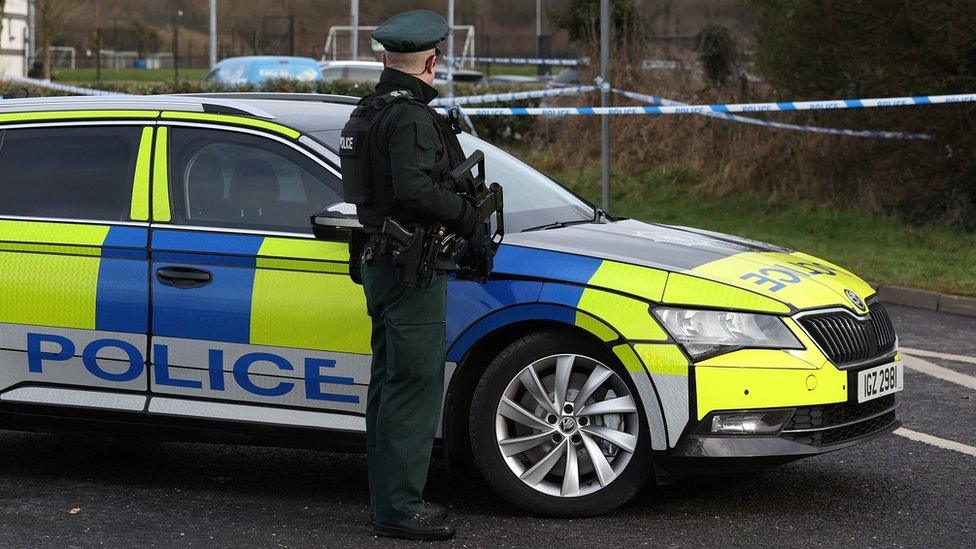
- Published12 December 2023
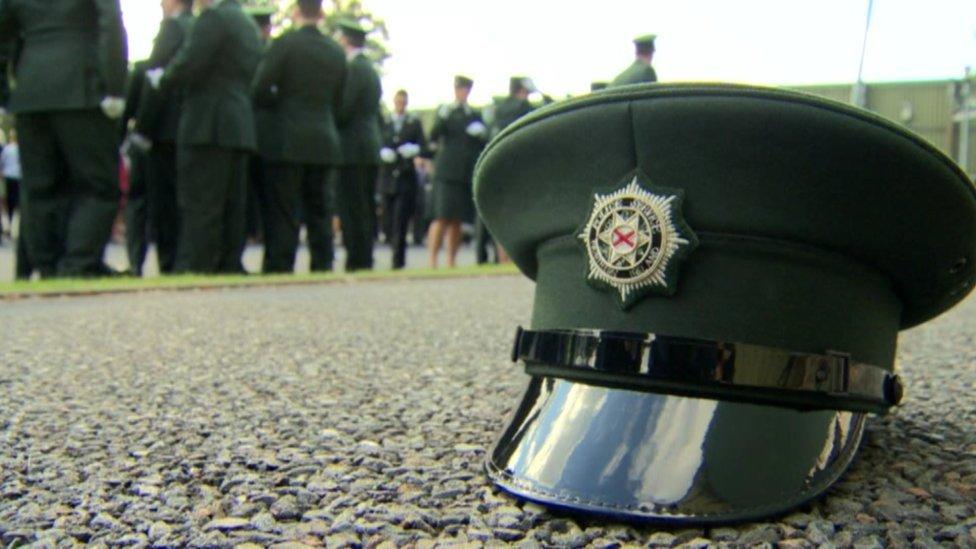
- Published20 April 2023
